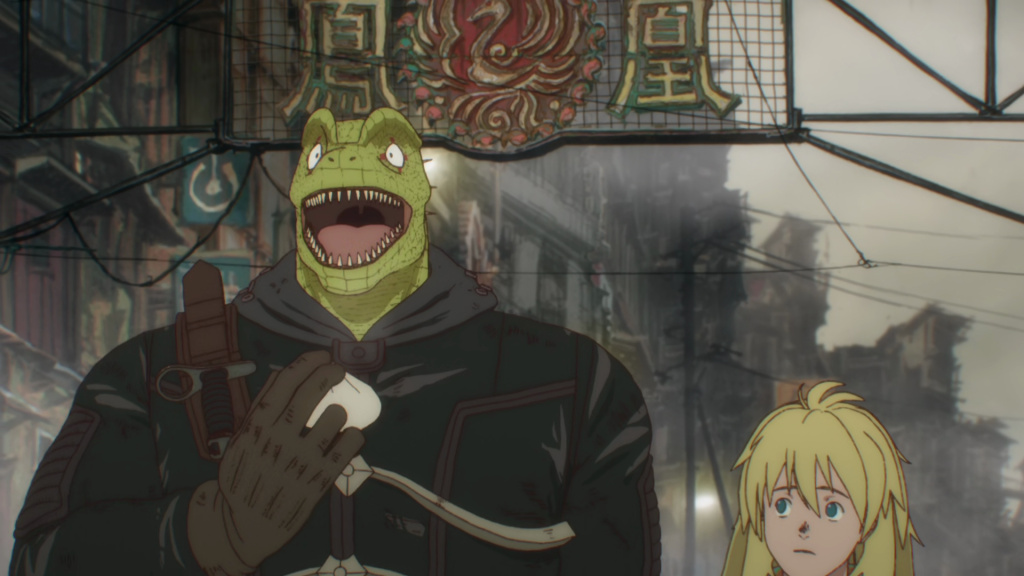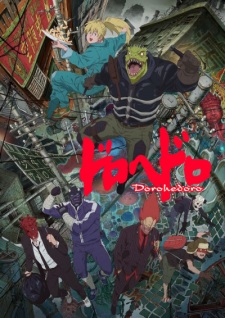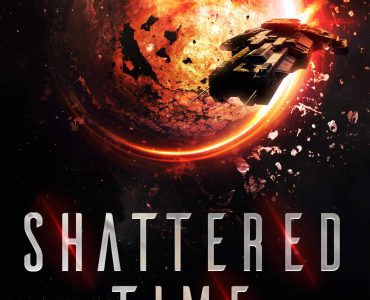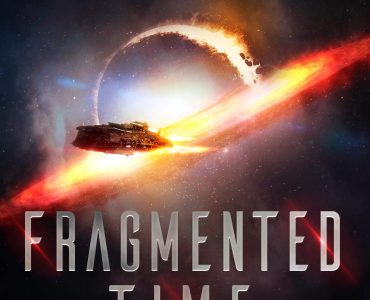Pros
- A fairly unique plot in an environment of reincarnation plots
- Is not shy about the graphic violence
- Interesting protagonists in Caiman and Nikaidou
Cons
- Some sorcerers can be outlandish, like the main mushroom villain
Dorohedoro Review
Released during the COVID pandemic, Dorohedoro is one of those shows that may have received greater recognition if not for global events at the time.
On the surface, the setting of the story isn’t that unique—the residents of Hole, a slum inhabited by the disadvantaged, are fighting off an invasion of sorcerers from a different dimension who use the residents of Hole as guinea pigs for spellcraft.

This backdrop of world being invaded by residents from another dimension isn’t in itself unique, but Dorohedoro distinguishes itself through its exploration of those more gray areas. Yes, there are people who take advantage and exploit others for their own gain, and perhaps the series goes a little overboard in its symbolism. But within this enjoyable story is a social commentary about classism that gives the anime a bit of lift.
The sorcerers who practice their arts on unsuspecting residents of Hole aren’t too much worse than the wealthy who exploit the poor for their labor, at least when it comes to Caiman, one of the main heroes of the story who receives supernatural strength in addition to his new fearsome head.
Caiman befriends Nikaidou, the person who discovers and saves him from his transformed state. The two continue a tradition of protecting their home by defeating any sorcerer who trespasses into their area—those moments of reprieve where Caiman gorges on gyoza—and who can blame him—give the story a bit of lightheartedness.

It’s not until the the heroes of the story make their way to the world of the sorcerers that viewers see the stark contrast between those who can cast spells and those who can’t. Even within this class of sorcerers is a hierarchy based upon ability. At the top of this hierarchy is En, the main antagonist who not only has the power to turn anything, including people, into mushrooms, but he’s also a successful businessman.
But En himself isn’t really a relatable character. His power and wealth put him too far above others to be relatable. Instead, his two henchmen, Noi and Shin, may be just as lovable or relatable as the two protagonists Caiman and Nikaidou.

What Noi and Shin illustrate is that beyond the labels of have and have nots, of rich and poor, is a shared story of people who struggle through life. Noi’s story is one of friendship and loyalty, whereas Shin’s story is one of betrayal and revenge. In some ways, their stories are more powerful than Caiman’s blind attempts to discover the sorcerer who changed him.
The series doesn’t shy away from violence. In fact, the graphic violence can be almost too much at some points, but even this extreme is a point of distinction among other series that tend to downplay or hide violence. Basically, this isn’t a show for more younger viewers.
Dorohedoro is a refreshing new take on a fairly common premise involving conflict between two different worlds. Viewers may be happy to learn that there is a season two in production, and they’ll finally get to learn of the fate of their two lovable protagonists (and perhaps of a few other characters).
Read reviews of other anime series.



